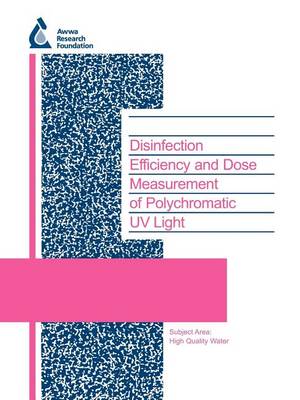Water Research Foundation Report
1 total work
Disinfection Efficiency and Dose Measurement of Polychromatic UV Light
by Karl G Linden and Alexander, A. Mofidi
Published 1 January 2004
There is currently intense interest in the use of ultraviolet technology for helping to meet future regulations relating to improved microbial inactivation and decreased disinfection byproducts (DBPs). Much of this interest has been fueled by recent research indicating the effectiveness of UV technologies for the inactivation of Cryptosporidium. This scientific discovery, combined with proposed regulations concerning DBPs in the United States, has resulted in a need to evaluate the feasibility and effectiveness of UV irradiation for use as a disinfectant for drinking water.The objectives of this project were to:(1) develop and evaluate physical, chemical, and biological methods for calculating effective germicidal UV dose from medium-pressure (MP) and Pulsed-UV (P-UV) lamps;(2) establish a UV dose/log inactivation relationship for specific bacterial and viral indicators for MP and P-UV lamps;(3) determine the extent of photoreactivation and dark repair of heterotrophic bacteria after treatment by MP and P-UV lamps; and(4) compare the ability of MP and P-UV lamps to inactivate Cryptosporidium. Originally published by AwwaRF for its subscribers in 2003 This publication can also be purchased and downloaded via Pay Per View on Water Intelligence Online - click on the Pay Per View icon below
